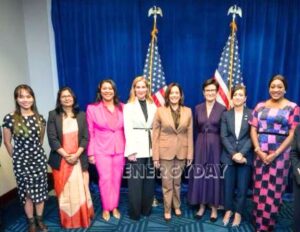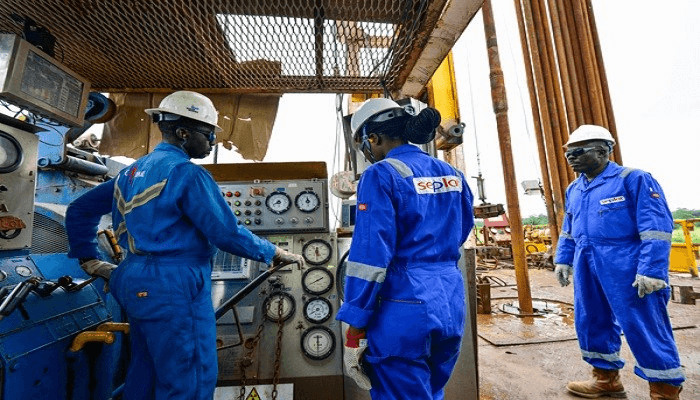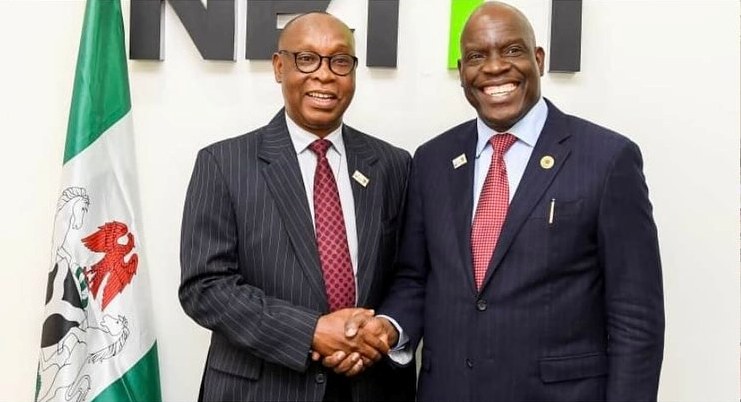Interrogating NNPC’s new role of repairing roads across the country

Energyday Editorial Board
Throughout last week, the media was awash with atypical news which ruffled quite some feathers; and put in question the sincerity of the implementation of an aspect of the new Petroleum Industry Act, that which questions the role of privatised the oil giant in playing the Father Christmas function.
The scary news: the new NNPC Limited is to embark on road constructions across the country.
Federal Inland Revenue Service and the Federal Ministry of Works agreed to allow the Nigerian National Petroleum Corporation (NNPC) use its tax credit for construction of roads across the country.
Although the volume of the tax credit is currently unknown, the approval is predicated on the reported agreement framework for the NNPC’s intervention in critical road rehabilitation under the Federal Government Tax Credit Scheme
The agreement, according to Garba Deen Muhammad, NNPC Spokesperson is rooted in the Road Trust Fund Policy of President Muhammadu Buhari’s Executive Order 7 of 2019.
The policy or Tax credit Scheme established under FG’s Executive Order 7 of 2019, gives private sector operators an opportunity to fund critical infrastructure with the government.
Presently, the government has entered into similar agreement with companies like Dangote, MTN and others to use their tax credit for construction of some specific roads in the country.
However, the decision by the NNPC to venture into this new phase is coming on the heels of its intention to persuade members of the Petroleum Tanker Drivers (PTD) Branch of the Nigeria Union of Petroleum & Natural Gas Workers (NUPENG) not to proceed on a planned strike action.
The Union had threatened to withdraw their truck from operations if the federal government refused to find lasting solutions to the road network challenges and other lingering issues.
The NNPC then called for a meeting with the Petroleum Tanker Drivers (PTD), the National Association of Road Transport Owners (NARTO), Department of Petroleum Resources (DPR), Federal Ministry of Works, and the Federal Inland Revenue Service (FIRS), in attendance.
Others at the meeting were Department of State Services (DSS), Federal Road Safety Corps (FRSC) and Nigeria Union of Petroleum & Natural Gas Workers (NUPENG).
NNPC’s GMD Mele Kyari, commenting on the outcome of the meeting said, “We are committed to utilising the Federal Government’s Tax Credit Scheme to rebuild some of the affected roads in line with Mr. President’s Executive Order 7. Upon our fruitful deliberations today, the NNPC has pledged to support the PTD and NARTO in carrying out quick intervention fixes on some strategic bad spots identified to enable unhindered movement of trucks for transportation of petroleum products nationwide.”
At EnergyDay, we find the initiative disturbing bearing in mind that NNPC is not only transmitting into a private company but currently has its hands full with subsidizing petrol.
Moreso, the company is venturing into road construction which is the sole responsibility of the ministry of works.
The move to a large extent, cast doubts on the implementation of the newly enacted Petroleum Industry Act.
This overlap of roles between the federal ministry of works and NNPC to us at EnergyDay is not only grotesque, but would seem to be an uncanny drama of the absurd; given that there is no where in the world where a profit-oriented private company would embark on massive road repairs across the country.
The logical explanation is to say that the government is hiding information from the public, for such action of road repair is not part of PIA, and there is no way it can be stretched out to mean corporate social responsibility.
We advise the federal government to always show some sense of responsibility in taking decisions, so that we as a nation and people will not be a laughing stock in the eyes of the international community.
Worrisome is the situation when we consider the fact that yearly huge some of money is budgeted for the ministry of works. So what happened to the budget?
The federal government in the 2022 budget proposal indicated that the ministries of works and housing; finance, budget and national planning; and defence will get the highest capital allocations.
Zainab Ahmed, minister of finance, budget and national planning, giving a breakdown of the 2022 budget said the ministry of works and housing was to get the highest allocation of N352.65 billion out of the entire N1.759 trillion capital expenditure for ministries, departments and agencies (MDAs) in the 2022 budget.
The earmarked sum far exceeds the N287 billion recorded as profit by the NNPC in 2020. Apart from the discrepancies that trailed the said profit post which incidentally is first since it’s 44 years of existence, the proposed venture into road construction cum maintenance seems to be another project design to return it to loss era.
The question that readily comes to mind is with this huge budgetary allocation to ministry of works, why would NNPC usurp its role and functions? Nigerians deserve urgent explanation to the idea of NNPC taking up the role of works ministry.
It is for us vacuity of good thinking that the federal government should concentrate on using tankers to convey petroleum products given attendant danger to the public and the collateral damage. Many lives have been lost and properties destroyed as a result of incessant tanker explosions across Nigerian roads.
For instance, in April this year, the GMD of NNPC announced via his a tweet handle the successful delivery of the pipeline for the Abuja-Kaduna-Kano (AKK) gas project from Warri in Delta state to Itakpe, Kogi state, through the Itakpe-Ajaokuta-Warri rail line.
Kyari went on to commend the rail transportation system for being cheaper, faster and safer.
“We congratulate our team on the arrival at 10.25pm 8.4.2021 of AKK gas project line pipes by rail from Warri to Itakpe. Less cost, faster delivery time, safer, protecting our roads and more…. The infrastructure revolution is paying up,” the tweet reads.
The corporation explained that the train carried 96 pipes at once, adding that it would take 32 trailers on the road to carry the same quantity.
“A major boost in the delivery of #AKKGasProject as NRC Train finally commenced epoch-making haulage of line pipes from Warri to Itakpe. This locomotive, which began journey @ 11.05am on 8th Apr 2021, carried 96 pipes at once, an equivalent of 32 trailers on the road!” NNPC said, in a tweet.
The above simply confirmed our view that there are alternative means of ferrying petroleum products. Further more, there are records to show the petroleum products were transported via the railway until government decided otherwise.
Aside the rail transportation, NNPC have a network of pipeline across the country which should actually deliver petroleum products faster and cheaper. But for vandalism!
But the plausible and often self -indicting argument from the government’s side on the issue of pipelines vandalism is not acceptable.
The argument is faulty because we have Nigeria Security and Civil Defence Corps (NSCDC), a paramilitary agency whose primary responsibility according to the law setting it up is to secure public institutions, including pipelines. If this so, one wonders why private security outfits can protect pipelines transporting crude oil in the Niger Delta region; while the NSCDC cannot protect the same pipeline but prefers to participate in electioneering activities. Such thing can only Only happens in Nigeria.
Unfortunately, operatives of the agency get paid even when they fail to protect pipelines, the most critical infrastructure in the country.
Why do we continue to play ostrich in this country and expect to develop. Playing ostrich with fundamental issues of our nationhood and expecting development is, mutually exclusive.
We need a new mindset to think out of the atrophied box, if we must make progress and accentuate our developmental stride.
We need a new approach, brand new governance structure and philosophy, if this house is not to fall.






